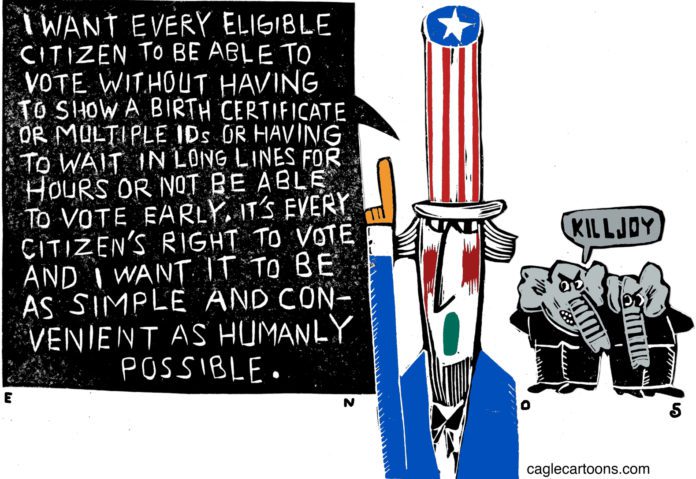BY DAVID PERRYMAN
 If Ferdinand Waldo Demara is a name that means anything to you, perhaps you are cut out for a career in law enforcement … or you might have just spent too many hours as a child in the post office leafing through wanted posters.
If Ferdinand Waldo Demara is a name that means anything to you, perhaps you are cut out for a career in law enforcement … or you might have just spent too many hours as a child in the post office leafing through wanted posters.
Demara’s nickname, the “Chameleon.” was earned through a lifetime of taking the identity of a number of different people in such varied careers as monks, surgeons and prison wardens. Ferdinand, commonly called “Fred” left home at 16 after watching his father lose everything in the Great Depression.
He bounced from the monastery to the military and back again. When neither the armed services nor the ministry were a fit, he assumed the identity of a psychiatrist then a college professor and then an orderly at a sanitarium. Perhaps his greatest masquerade was as a military trauma surgeon aboard a Royal Canadian destroyer ship during World War II at which time, he performed a number of intricate but successful surgeries.
We might like to think that the rudimentary technology of the 1930s and ‘40s contributed to Demara’s ability to assume more than 40 different identities. However, two decades later, 1960s technology was no more adept at catching Frank Abagnale whose story was chronicled in the 2002 Leonardo DiCaprio film Catch Me If You Can.
Now, 50 years removed from Abagnale’s antics, biometric technology, involving the use of human characteristics for identification, security and access control, is readily available. At the federal level, in an attempt to make it more difficult for terrorists to obtain fraudulent ID’s, Congress passed the Real ID Act of 2005.
While Oklahomans are comfortable with the well-established biometric use of fingerprint technology, other identifiers such as iris recognition, retina scans, face recognition, DNA, palm veins and prints, hand geometry, body shape as well as odors and scents have met resistance.
In 2007, the Oklahoma Legislature adopted SB 464 prohibiting the Oklahoma Department of Public Safety from implementing key provisions of the Real ID Act of 2005 and requiring all Oklahoma agencies to delete all previously collected or retained biometric data from all state databases.
Today, your Oklahoma ID is not sufficient to allow you to gain access to restricted areas in federal buildings. In approximately 100 days, Oklahomans will not even be able to get into most federal buildings and in 12 short months an Oklahoma driver license will not be recognized by TSA agents to allow Oklahomans to board a commercial flight.
A key deficiency in Oklahoma’s process is the fact that Oklahoma has not taken steps to secure access to the machines that produce identification cards and driver licenses.
The identification debate has also crept over into the arena of voter ID. Wendy Underhill’s September 2014 article in State Legislatures, the magazine of the National Conference of State Legislatures, examines whether voter ID laws are couched to fight voter fraud or block ballot box access.
Eligible citizens should be able to vote and ineligible voters should be prevented from doing so. However, which principle is more important: access to the ballot box or prevention of voter fraud.
The Carnegie Foundation and the John S. and James L. Knight Foundation through News21, a national investigative project, funded a special in-depth 2012 investigation and study called “Who Can Vote.” The study’s conclusion was that voter fraud in the U.S. is infinitesimal and that, nationally, over more than a decade, there were no more than 10 reported incidents of in-person voter impersonation.
The greatest amount of fraud occurred through the voter registration process and through the use of absentee ballots and that voter identification documents, photo or not, would not have prevented this type of fraud.
Consequently, the most pressing identification issue facing Oklahomans today is the verification of identity at the time that the identification is issued, not when or how it is used. Until Oklahoma’s process is compliant in that regard, with or without biometric data, we will not be meeting the needs of Oklahomans.
A good fingerprint database, let alone a retina scan, would have prevented the fraud of Demera and Abignale. Instead, Oklahoma’s lawmakers appear more concerned with who does and doesn’t vote than with the safety of our flights.
– David Perryman, a Chickasha Democrat, represents District 56 in the Oklahoma House of Representatives









